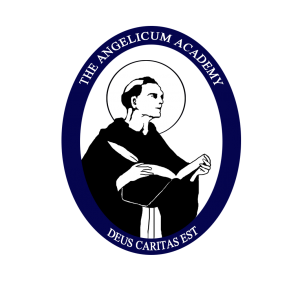WHAT ARE THE THEOLOGY ONLINE COURSES? It is a number of college-level courses coordinated jointly by Ignatius Press and the Angelicum Academy. This coordination is necessary and helpful to students in three ways at least: 1.) it assures them of fixed, certain paths to degrees from accredited colleges which have agreed to accept all or part of the Theology Online and Great Books courses for college credit, which are clearly set forth in formal agreements without the ambiguity often attendant upon transfers or changing institutions of higher learning; 2.) it allows students to begin college-level and college-credit-earning studies while homeschooling or in school, as early as age 14 (or 9th grade), and up; 3.) it dramatically reduces college costs in two ways: a) by spreading the costs of college out over a longer period, beginning as early as the student’s 14th year (or 9th grade); b) because the costs of homeschooling and distance education do not have to include unnecessary costs of maintaining extensive buildings and maintenance staff nor does it include expensive room and board for students away from home it is much less expensive (by nearly 67% on average as compared to private four-year colleges), yet numerous studies confirm the equal or superior quality of distance education.
The Seven Liberal Arts – from the Hortus deliciarum of Herrad von Landsberg (12th century)The Seven Liberal Arts – from the Hortus deliciarum of Herrad von Landsberg (12th century)
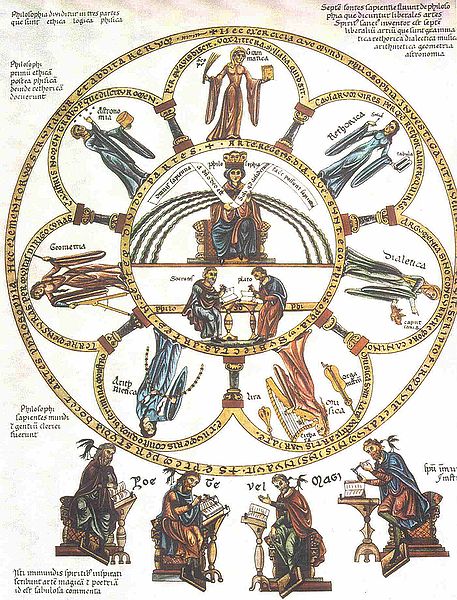 WHAT DOES “LIBERAL” MEAN? A few people have, rather understandably, wondered at the meaning of “liberal” as used above. It has nothing – or very little – to do with contemporary politics, nor with the conservative vs. liberal political meaning. Rather, the root word is from the Latin “lyber” meaning “free.” Related is the Latin word for book: liber. Books, or what they contain – knowledge – free us from the darkness of ignorance. Any learning art that aids us in gaining that liberty we call a liberal art.
WHAT DOES “LIBERAL” MEAN? A few people have, rather understandably, wondered at the meaning of “liberal” as used above. It has nothing – or very little – to do with contemporary politics, nor with the conservative vs. liberal political meaning. Rather, the root word is from the Latin “lyber” meaning “free.” Related is the Latin word for book: liber. Books, or what they contain – knowledge – free us from the darkness of ignorance. Any learning art that aids us in gaining that liberty we call a liberal art.
Liberal Studies is merely another term for liberal education. The liberal studies or liberal arts denote a curriculum that imparts general knowledge and develops the student’s rational thought and intellectual capabilities, unlike professional, vocational, or technical curricula emphasizing specialization. In classical antiquity, the liberal arts denoted the education proper to a free man (Latin: liberus, “free man”), unlike the education proper to a slave. In the 5th century AD, Martianus Capella academically defined the seven liberal arts as: grammar, dialectic, rhetoric, geometry, arithmetic, astronomy, and music. In the medieval Western university, the seven liberal arts were divided into the trivium (the three): grammar, rhetoric, logic; and the quadrivium (the four): arithmetic, geometry, music, astronomy. Contemporary liberal studies retains the notion of “general studies” or “humanities” resulting in a well-rounded, well-educated, humane individual – the best grounding for the specifically Christian virtues.
HOW DO I START? Go the enrollment page and complete the enrollment form. You will then be taken to the bookstore to pay for your enrollment. Angelicum Great Books Program classes start the first week of September each year (start dates vary for foreign students), but classes are limited and may fill up early so do not delay too long or you risk not finding class space. Fr. Fessio’s Theology Online courses are asynchronous and so may be started any time of year and may be finished as quickly as the student has time to complete the work/readings and tests.
WHAT DO I NEED TO START? The ability to read well, a PC, a $10-20 microphone or headset with microphone, a phone line, and tuition (available in one-ten monthly payments). If you have high speed internet that’s great, but only dial-up is necessary. Yes, Macs are fine. The software is provided via free download. Our online classroom software works on Android phones or any wireless PC or laptop.
MAY I START FROM HOME? Yes. Most of our students start from their homes.
HOW OLD DO I HAVE TO BE TO START? We accept motivated students from age fourteen (or 9th grade) and up. As with AP, dual enrollment and the other early college credit programs, it is intellect, interest and motivation that limit success in studies, not age.
 WHY THE EARLY EMPHASIS ON THE “GREAT BOOKS” OF WESTERN CIVILIZATION AND THEOLOGY? Because the list or canon of what are generally (almost universally) considered the greatest masterpieces of our civilization contain brilliant insights, profound truths and wisdom. Wisdom is generally acknowledged to be the highest good of the human mind, whether this be recognized as knowledge of first principles and causes or as a contemplative gaze at Wisdom itself. How does one obtain wisdom? The means is primarily conversation with great and wise persons who have already advanced far along the paths of knowledge and understanding to wisdom. As the philosopher Dr. Peter Redpath succinctly puts it when addressing audiences of young people interested in understanding why they ought to read great books: “If you wish to become wise, learn from wise people.”
WHY THE EARLY EMPHASIS ON THE “GREAT BOOKS” OF WESTERN CIVILIZATION AND THEOLOGY? Because the list or canon of what are generally (almost universally) considered the greatest masterpieces of our civilization contain brilliant insights, profound truths and wisdom. Wisdom is generally acknowledged to be the highest good of the human mind, whether this be recognized as knowledge of first principles and causes or as a contemplative gaze at Wisdom itself. How does one obtain wisdom? The means is primarily conversation with great and wise persons who have already advanced far along the paths of knowledge and understanding to wisdom. As the philosopher Dr. Peter Redpath succinctly puts it when addressing audiences of young people interested in understanding why they ought to read great books: “If you wish to become wise, learn from wise people.”
“Contact with writers of genius procures us the immediate advantage of lifting us to a higher plane; by their superiority alone they confer a benefit on us even before teaching us anything….they accustom us to the air of the mountaintops….In that world of lofty thought the face of truth seems to be unveiled; beauty shines forth…” -A.G. Sertillanges, O.P., The Intellectual Life
Because persons of great wisdom are rare and generally unavailable to us due to distance or death, we enter into conversation with them through their books, which record their thought. In doing so we soon discover how all the authors of great books used this same method of study themselves—conversing with or reading the great books of the sages of earlier generations as their starting point. In so doing they avoid having to re-invent the wheel each generation; they avoid mistakes already dealt with and build on existing foundations. Indeed, what would be the point in studying mediocre works by lesser luminaries or beginning all thought over from square one every few years, when great books by the wisest people – the great sages of civilization – are now readily available? No education worthy of the name can neglect the greatest works of literature.
“The reading of all good books is indeed like a conversation with the noblest men of past centuries who were the authors of them, nay a carefully studied conversation, in which they reveal to us none but the best of their thoughts.” – Descartes, Discourse on Method, I “Reading the Great Books had done more for my mind than all the rest of the academic pursuits…it is the best education for the faculty as well as for the students; the use of original texts is an antidote for survey courses and fifth-rate textbooks; and it constitutes by itself, if properly conducted, the backbone of a liberal education.” – Dr. Mortimer J. Adler
Similarly, theology is the queen of the sciences, leading to wisdom. Because it is studied only here and there in the Great Books courses, we thought it important to add the systematic study of theology due to its importance and profundity. Fr. Fessio has recorded approximately 100 excellent lectures in total for the four theology courses.
WHAT ABOUT COSTS? (Tuition Chart below)– Private four-year college tuition and fees have increased on average from $172 to $1,096 more in the last year, bringing the average cost to $ 26,273 per year – that’s over $100,000 for a four year degree – bringing the average cost per credit hour to nearly $700 per credit hour (over $2,000 per typical 3-hour course). The Liberal Studies Program is about 1/3th that cost per credit hour ($250
Average Published Charges for Undergraduates at Four-Year Institutions by Control of Institution, 2011-12
Source: CollegeBoard (Enrollment-Weighted)
Type of Four-Year Institution
* Assumes 2 years/60 credit hours towards bachelor’s degree earned, for comparison purposes (with LSP early enrollment discounts [10%]).
Students in the Liberal Studies Program can begin earning up to 60 college credits (2 years of college) while in high or home school with the excellent, live, Angelicum Great Books Program (48 credit hours total) and Fr. Fessio’s four Theology Online courses (12 credit hours total) — all of which are recommended by the American Council for Education (ACE) for college credit. Over 2,000 colleges and universities are affiliated with ACE. Students can take solid, orthodox, Catholic undergraduate theology courses taught by Fr. Joseph Fessio, SJ, ThD — himself a student of Pope Benedict XVI.
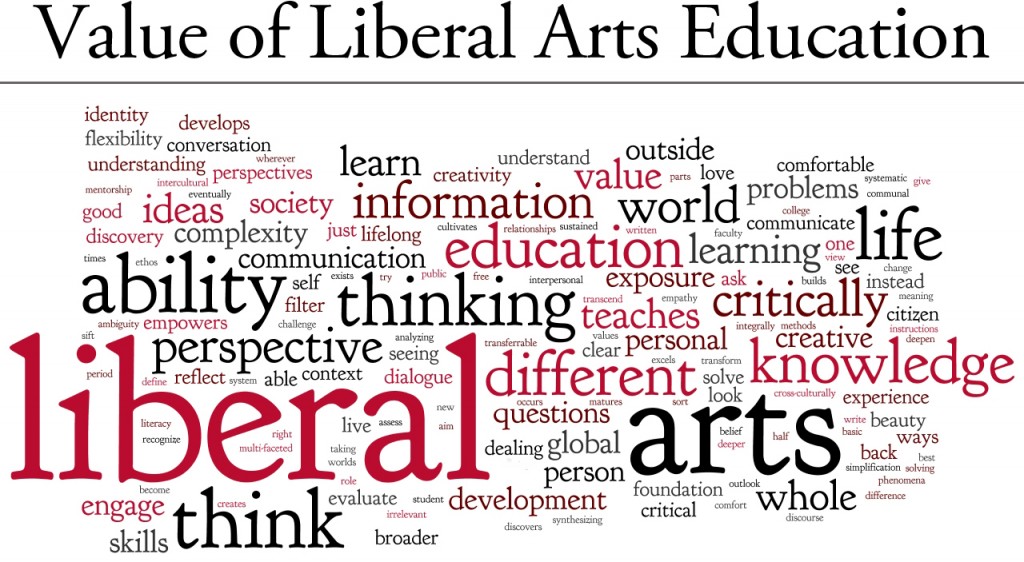 DOES LSP ACCEPT INSTALLMENTS FOR TUITION? Yes. Tuition may be made in as many as ten installments of 1/10th each. Students may take longer to complete the asynchronous theology courses, but the maximum payment plan length is 10 months/payments.
DOES LSP ACCEPT INSTALLMENTS FOR TUITION? Yes. Tuition may be made in as many as ten installments of 1/10th each. Students may take longer to complete the asynchronous theology courses, but the maximum payment plan length is 10 months/payments.
WHEN WILL THE INSTALLMENT PAYMENT BEGIN? The first installment payment of 1/10th the tuition selected for the Angelicum Great Books Program or the Theology Online courses is charged at the time (on the date) the order is placed, then monthly until paid in full. Once made, entered or processed, payments are nonrefundable. Installment payments for the Great Books Program ordered after August 31st will be calculated based on the number of months remaining in the semester (please feel free to email us for further clarification if needed). “One year” as used above refers to one academic year (i.e., two semesters, September-December, January-May, 15 weeks of class per semester plus subsequent oral exam online. Schedules for foreign classes may vary.).
MAY I DISCONTINUE INSTALLMENT PAYMENTS? Yes, you may discontinue Installment Payments. If you wish to discontinue installment payments we need to be notified of this in writing (email is fine) at least three days (72 hours) prior to the next charge date. This gives us time to make that change in the payment system for the remaining installments. Notice less than 72 hours prior to the next charge date will not be effective until the next following payment (i.e., a full month later).
IF I DISCONTINUE INSTALLMENT PAYMENTS WILL I BE RESPONSIBLE FOR ANY BALANCE OR REMAINING PAYMENTS? No. Students may attend class or view recorded material until the last day for which they have paid tuition.
IF MY STUDENT FINDS THE GREAT BOOKS COLLEGE-TRACK TOO DIFFICULT, MAY HE OR SHE SWITCH TO THE HIGH-SCHOOL-TRACK? Yes. The College track requires completion of weekly answers to question in the Great Books Study Guides. This is not required in the high school track. If you enroll in the College track, the Great Books Study Guides to accompany the readings for which you enrolled will be automatically mailed to you – free of charge. High school track students may purchase the Great Books Study Guides if they wish, but are not required to do so. A student who desired to switch tracks would need to do so by notifying us in writing (email is fine) at least 72 hours prior to the next installment payment date in order to obtain a tuition reduction for that payment. But there is no difficulty in changing tracks. A college-track student who received the Great Books Study Guides free with College-track enrollment would need to either pay for them or return them to us.
HOW AND WHERE DO I BUY THE BOOKS FOR THE LSP? If you wish to purchase any books, please visit the bookstore and do so. Allow sufficient delivery time for weekends and shipping. Most of the Great Books are available for free online or at libraries.
HOW MANY HOURS DO COLLEGES REQUIRE FOR BACHELOR’S DEGREES? In the 1920’s the Carnegie Foundation offered to fund college teachers’ retirement plans in the US if their institutions adopted a four-year, 120 hour minimum for bachelor’s degrees. This strategy worked and that is the norm in the US, though there are exceptions. In Europe, Australia and other countries three-year bachelor’s degrees (90 US credit hours) are still common.
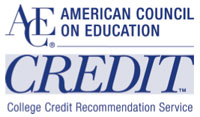 HOW MANY HOURS OF COLLEGE-LEVEL CREDIT DID THE AMERICAN COUNCIL ON EDUCATION RECOMMEND FOR THE ANGELICUM GREAT BOOKS PROGRAM AND THE THEOLOGY ONLINE? 60. The American Council on Education’s College Credit Recommendation Service (ACE CREDIT) evaluated and recommended college credit for 8 courses (6 per semester; 12 per year, totaling 48 hours) of our Great Books Program, which may be begun as early as age 14 (9th grade), and 3 credits for each of the four Theology Online courses (a total of 12 credits), for a grand total of 60 credit hours – the equivalent of two years of college.
HOW MANY HOURS OF COLLEGE-LEVEL CREDIT DID THE AMERICAN COUNCIL ON EDUCATION RECOMMEND FOR THE ANGELICUM GREAT BOOKS PROGRAM AND THE THEOLOGY ONLINE? 60. The American Council on Education’s College Credit Recommendation Service (ACE CREDIT) evaluated and recommended college credit for 8 courses (6 per semester; 12 per year, totaling 48 hours) of our Great Books Program, which may be begun as early as age 14 (9th grade), and 3 credits for each of the four Theology Online courses (a total of 12 credits), for a grand total of 60 credit hours – the equivalent of two years of college.
BESIDES THE HIGH SCHOOL OR COLLEGE CREDIT, WHAT SERVICES ARE INCLUDED IN TUITION? Included: Access to our Weekly Two-hour Great Books Online Classes and/or the Theology Online Lectures for each course enrolled in; Two Online Moderators Per Great Books Class; Two Semester Great Books Essays Graded by Our Tutors; Semester Oral Exam Online; Transcript maintenance by the Angelicum staff; and in addition, for the College-track: Great Books Study Guides (and no s/h fee); Weekly grading service for our Great Books Study Guides; Recommended college credits for successful completion of each semester of the Great Books courses or the Theology Online courses.
WHAT IS FATHER FESSIO’S ROLE IN THE LIBERAL STUDIES PROGRAM? Renowned Catholic educator, Father Joseph Fessio, S.J., Th.D., is the founding Chancellor the Ignatius-Angelicum LIBERAL STUDIES PROGRAM and the instructor in each of the four Theology Online courses and the 100 or so total lectures for those four courses.
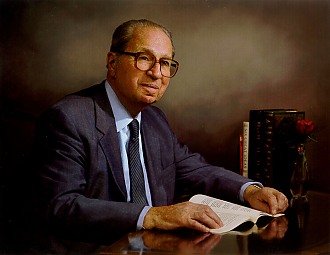
Dr. Mortimer J. Adler
WHAT IS THE FOUNDING VISION OF THE LIBERAL STUDIES PROGRAM? The vision of the principals involved in establishing the various elements of the program was rooted in that of Dr. Mortimer J. Adler (1902-2001), educational philosopher, author of over 50 books in philosophy, Catholic convert and Editor-in-Chief of both Encyclopaedia Britannica and Britannica’s Great Books of the Western World. For most of the twentieth century, Dr. Adler was a powerful voice advocating the importance of not wasting the high school years in mediocrity and trivialities, but rather of elevating them to accomplish the critically important general or “liberal education” (i.e., education liberating or freeing minds from the darkness and slavery of ignorance) of young people before they missed the opportunity due to the pressures of earning a living, supporting a family or paying student debt. Dr. Adler wrote:
“If I had any hope that in the foreseeable future, the educational system of this country could be so radically transformed that the basic liberal training would be adequately accomplished in the secondary [i.e., high] schools and that the Bachelor of Arts degree would then be awarded at the termination of such schooling, I would gladly recommend that the college be relieved of any further responsibility for training in the liberal arts… if we are going to have general human schooling in this country, it has to be accomplished in the first twelve years of compulsory schooling…it would be appropriate to award a bachelor of arts degree at the completion of such basic schooling. Doing so would return that degree to its original educational significance as certifying competence in the liberal arts, which are the arts or skills of learning in all fields of subject matter.”

